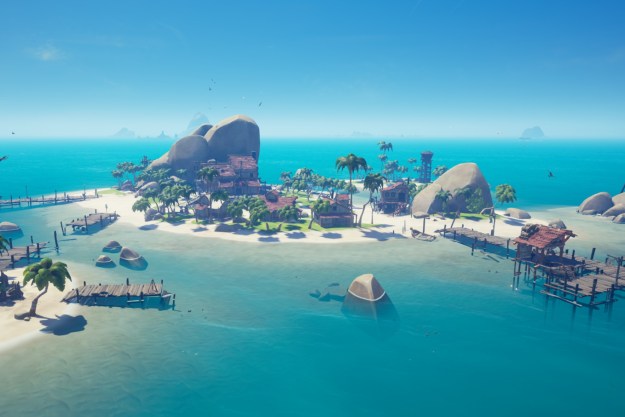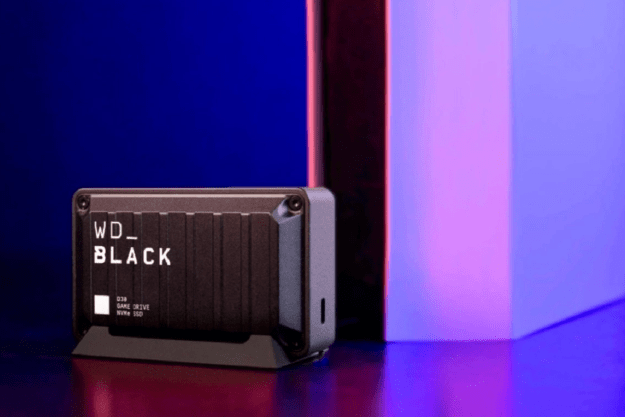Those fans had been waiting a long time, but they were patient. When Inafune and his company, Comcept USA, launched a Kickstarter campaign for Mighty No. 9, fans had been willing to put up money to fund it — more than $3.8 million altogether. Inafune and his crew had originally asked for just $900,000.
But the development of Mighty No. 9 seemed troubled. Comcept delayed the game’s release multiple times and, when it finally launched, it did so to weak reviews. Players were disappointed and confused. Was the $3.8 million they spent not enough to realize Inafune’s vision? Why wasn’t the game as good as they’d imagined?
To Justin Bailey, CEO of game crowdfunding-slash-investment service Fig, rewards-based crowdfunding like Kickstarter might not be long for this world.
The answers to those questions are … complicated. They stem from problems that arise in both game development and crowdfunding. As developers realize the financial targets they’ve set aren’t actually in line with reality, or that the costs of fulfilling promises to backers is higher than they ever expected. These unforeseen issues are why so many games journalists have written editorials reminding consumers that Kickstarter isn’t a storefront, it’s a wishing well.
To Justin Bailey, chief executive officer of video game crowdfunding-slash-investment service Fig, rewards-based crowdfunding like Kickstarter — where you donate money to a campaign at different tiers that promise various gifts like t-shirts, game downloads or chances to meet developers — might not be long for this world.
“If you look at the data over the last 9 months on both Indiegogo and Kickstarter, a lot of those experiential tiers — nobody’s participating anymore,” Bailey told Digital Trends. “They just dried up. And I think that’s one reason why you’re seeing kind of a downward trend and so many spectacular failures lately. I think you’re going to see those continue and I think you’re going to see some developers ask for smaller and smaller amounts, which will be more and more disconnected from the actual budget they need. I don’t think that that’s a sustainable ecosystem.”
Crowdfunding evolution
To Bailey, that unsustainable ecosystem is partially the result of projects that have funded but failed, or turned out disappointing games, and partially because, for some, crowdfunding has morphed into a publicity stunt.
“One of the things I think characterizes this is, you’ve had some bad actors over the last, like, four years,” Bailey said. “There have been some people who have been using it for kind of disingenuous purposes. They just use them for press, or they actually have a publisher which they haven’t disclosed on the back end.”
Bailey’s not the only person who sees “Kickstarter fatigue” setting in. Brighton, UK marketing firm Ico Partners warned about “the hidden, slow decline” of video game Kickstarter campaigns last year.
In 2016, It seems harder to convince players to put up money to back game ideas. At this point, many people interested in crowdfunding have been burned by major failures such as Yogventures, Code Hero or Unsung Story.

Even high-profile projects have struggled on Kickstarter this year. Fable Fortune, based on a well-loved franchise, moved slowly through crowdfunding and ultimately canceled its campaign when other financial backers showed up. The campaign for Blackroom, from famous names like John Romero and John Carmack, two developers instrumental in creating well-known and beloved classic franchises like Wolfenstein and Doom, was suspended until the developers could put together a demo of their game to prove the concept to potential backers.
Bailey thinks Fig has a solution to make crowdfunding sustainable. Rather than treating crowdfunding as means a platform for donating money to creative pursuits, Fig allows regular people to invest in a game, entitling them to a share of the project’s receipts. Right now, investments can be as low as $1,000. The company still includes rewards-based funding in its campaigns, but Bailey said he sees crowdfunding evolving away from that model.
“I see this investment-based crowdfunding replacing reward-based crowdfunding, because I think people’s expectations will just be like — you know, when people preorder a game, they do that three months in advance,” he said. “When they support a game three years in advance, they want a stake.”
Curation and transparency
Fig is attempting to create a platform that alleviates some of the issues people have come to associate with crowdfunding in general. Each campaign that makes it to Fig goes through a high degree of curation. Each project is evaluated based on the studio’s stability, the scope of its project, and the budget needed to achieve its goals.
In its first year, Fig has run six total campaigns, four of which were successfully funded. Keeping that number low is part of the design, Bailey said.
“Some campaigns have come to us and they’ve been amazing developers, and really good ideas, and existing properties, and we’ve looked at them and we’re like, ‘But you guys could be out of business in two months,’” Bailey explained. “And so we’re like, ‘we can’t take that chance.’ We have two campaigns right now that I unfortunately had to turn down because of quality concerns. And I’d rather there not be anything up on the site rather than have something up just to have something up.”
The addition of actual investors introduces a big dose of transparency to campaigns that appear on Fig, Bailey said. The company pays close attention to budgets through development, handing over its funding in installments, and checking in to make sure it’s actually being spent on the game. All that oversight helps keep the game companies honest as they use investor money.
It does this because, in providing the platform, Fig is also an investor in all of its projects. Kickstarter and Indiegogo take their fees off the top of a completed campaign (although Kickstarter gets nothing, like the people behind the project, if the campaign is not fully funded) off the top. Fig, instead, takes part ownership of the project. Like a traditional investor, the company doesn’t get paid until developers and investors do. Bailey said the company also works to provide marketing and otherwise add value to developers to help make investments less risky.

In addition to budget concerns, Fig’s curation process focuses on games that are as likely to succeed as possible, and that usually means quality. Its first title, Outer Wilds, was an Independent Games Festival winner, and its next big title, Psychonauts 2, is a cult classic from developer Double Fine, a studio from which Bailey hails and whose founder, Tim Schafer, is on the Fig advisory board.
The strength of the games
Despite the fact that none of Fig’s funded projects have launched — Outer Wilds is currently available for pre-orders — and Fig has not earned any money, Bailey is confident in the games helped raise money. The original crowdfunding spirit — the desire to contribute to help make something cool actually exist — is still present in backers, Bailey said, according to polls the company has done of its own backers. But after some very public crowdfunding failures and bad actors misusing the process, he thinks bringing more people out to fund projects is going to require the kind of protection Fig’s investment process provides.
“When people pre-order a game, they do that three months in advance. When they support a game three years in advance, they want a stake.”
It’s part of the reason Fig chose to run a campaign for Consortium: The Tower, he said — even though the game had failed on Kickstarter. Bailey said the data Fig had gathered about crowdfunding projects meant that Consortium was a better for Fig’s model.
“It was funny because my big thing was, I’ll never take campaign that failed Kickstarter, because I don’t want people to think, ‘Go to Kickstarter first, try it out, if it doesn’t then come to us,’” Bailey explained. “But in this case I was like, yeah, you know, we’re gonna take them on, because I can guarantee you these kind of campaigns would not do better on Kickstarter.”
“The difference is, we’d be doing marketing and stuff … so I’d be like, no, absolutely, it’s not the properties, it’s the state of rewards-based financing.”
Whether Bailey is right about the decline of platforms like Kickstarter or Indiegogo, of course, still isn’t exactly clear. Kickstarter has said it saw more than $144 million in gaming pledges in 2015, over $46 million of it for video games (the rest was for tabletop games). It’s hard to ignore big failures, but the effect they’re having on crowdfunding at large might be short-lived, or more anecdotal than factual.
Still, Fig’s model of heavy curation and transparency provides a strong alternative to rewards-based models as players and developers grow weary of them. How successful it ultimately is will depend on the games that come out of it.
Editors' Recommendations
- Every rumored video game console: Nintendo Switch 2, PS5 Pro and more
- Our most anticipated video games of 2024: Final Fantasy, Hellblade 2, and more
- The best video games of October 2023: Mario, Spider-Man 2, and more
- The best games from E3 2021: Metroid Dread, Redfall, and more highlights
- E3 2021: Starfield, Breath of the Wild 2, and more games we expect to see


